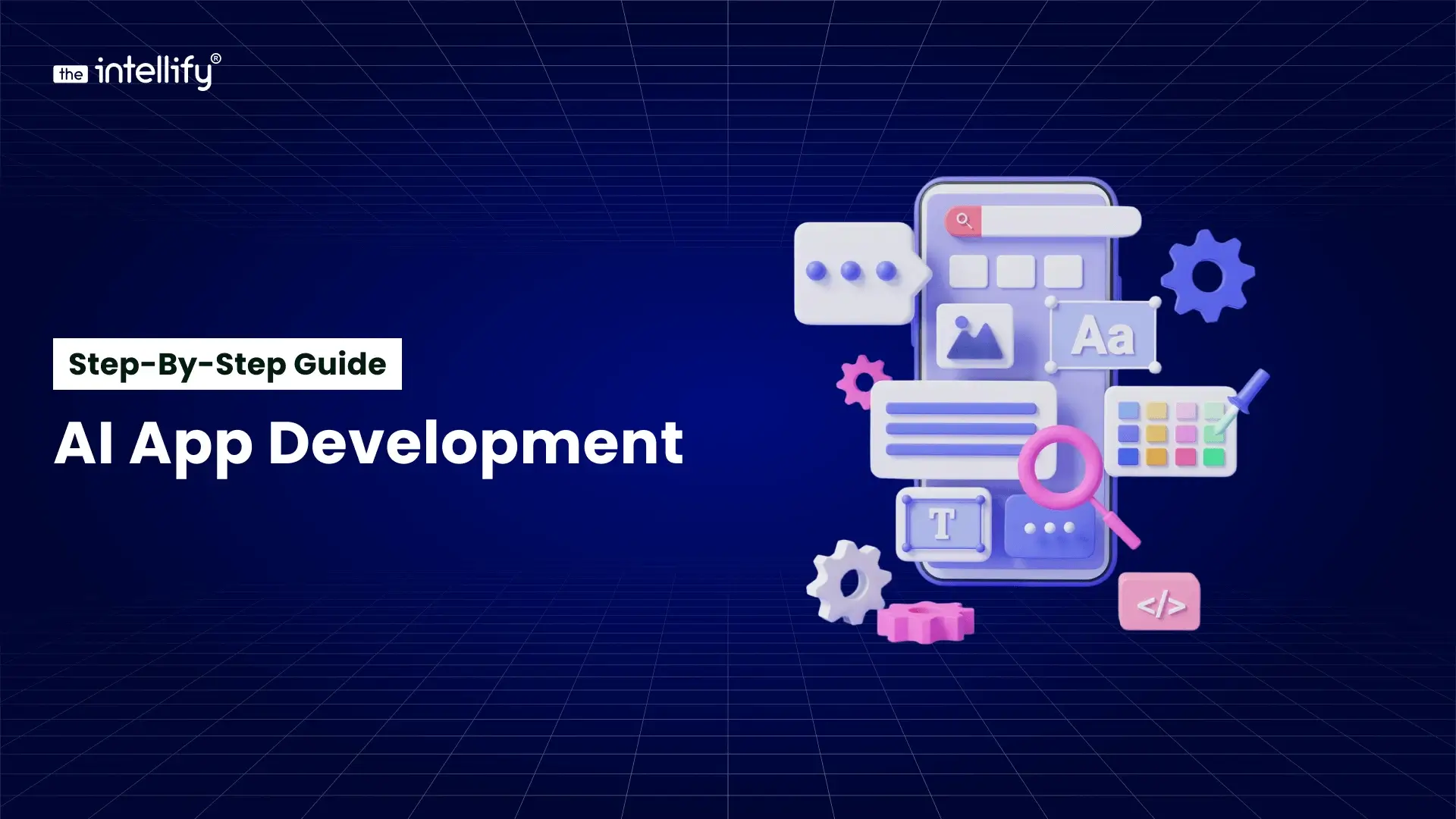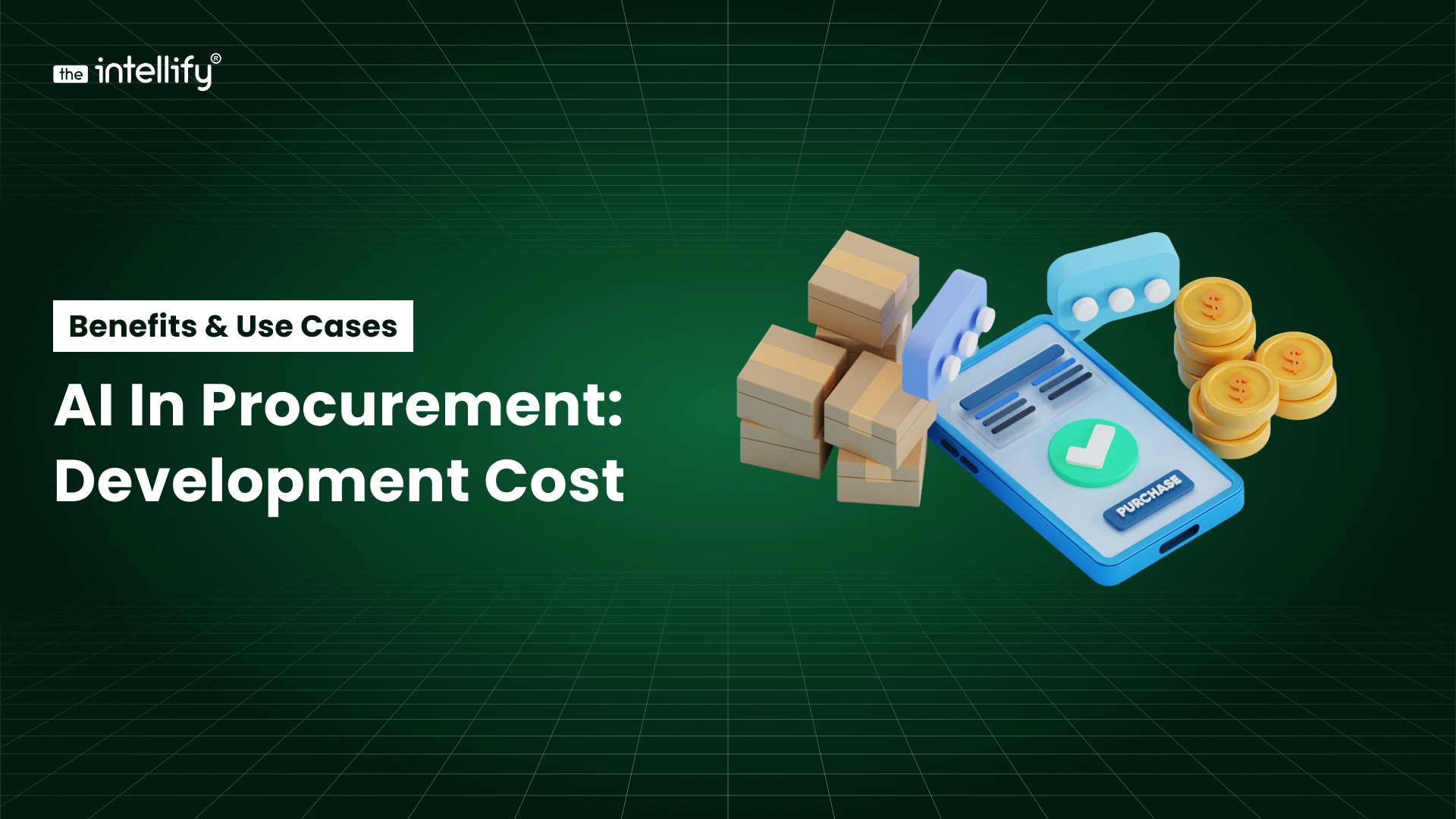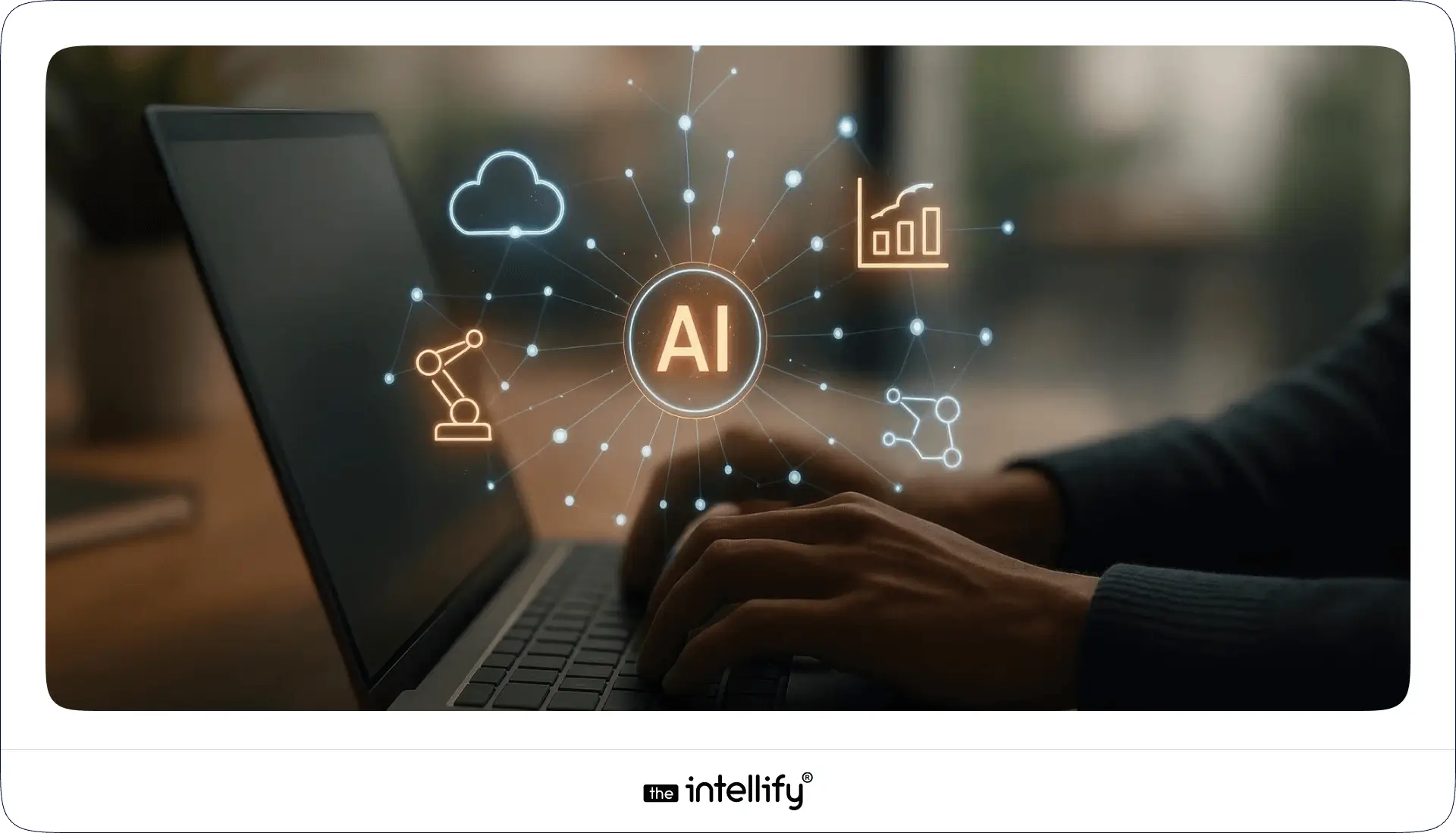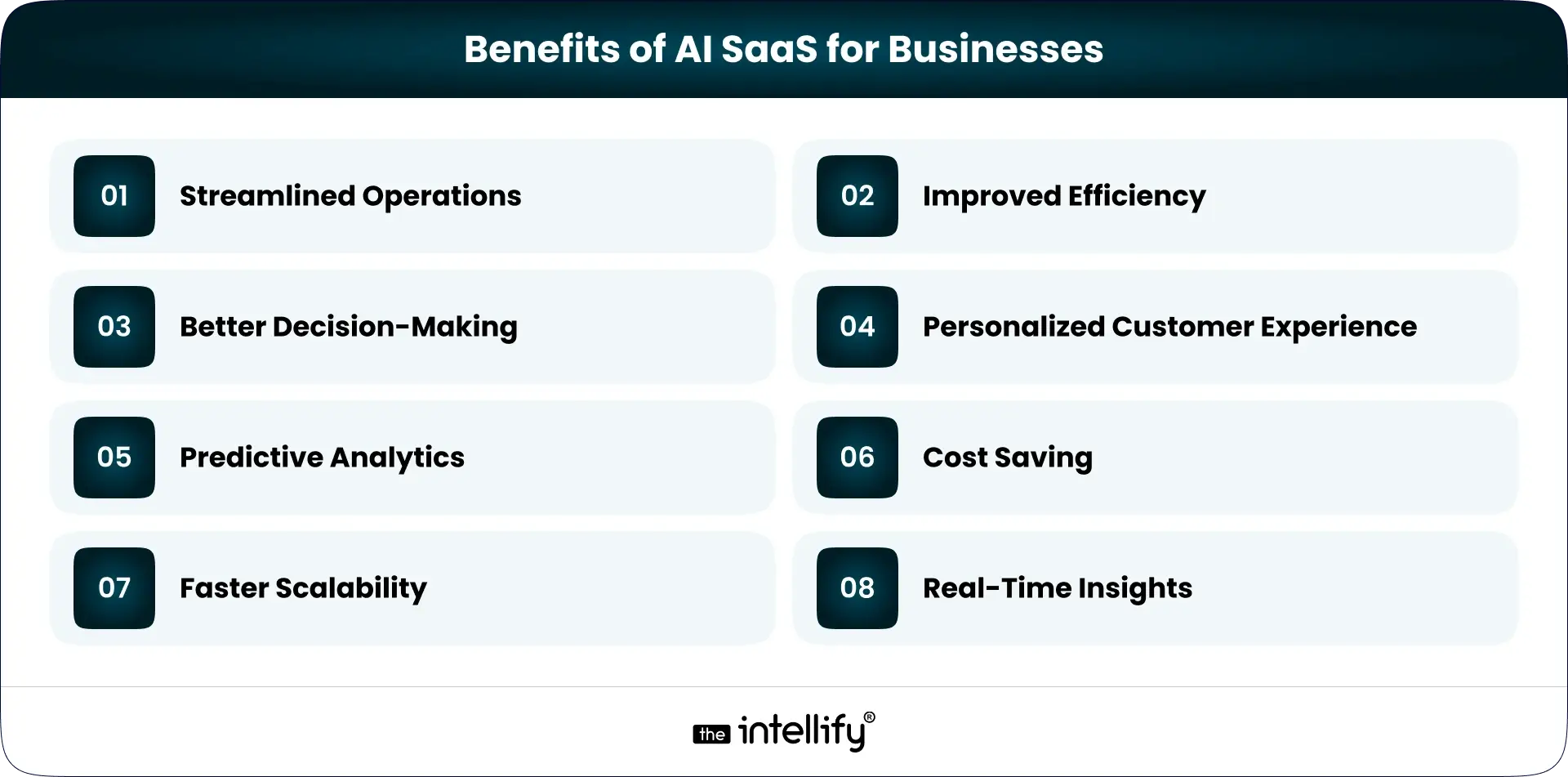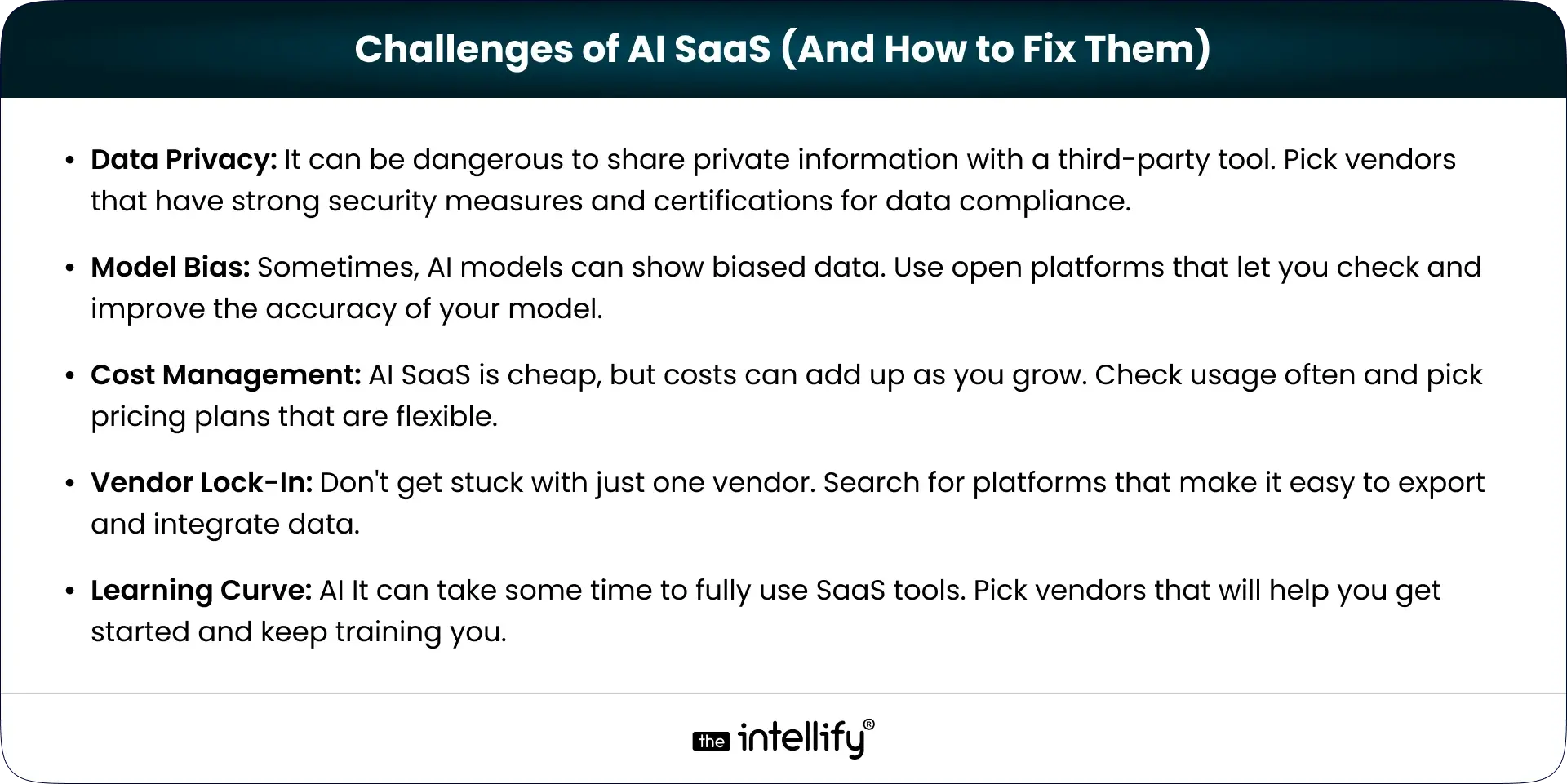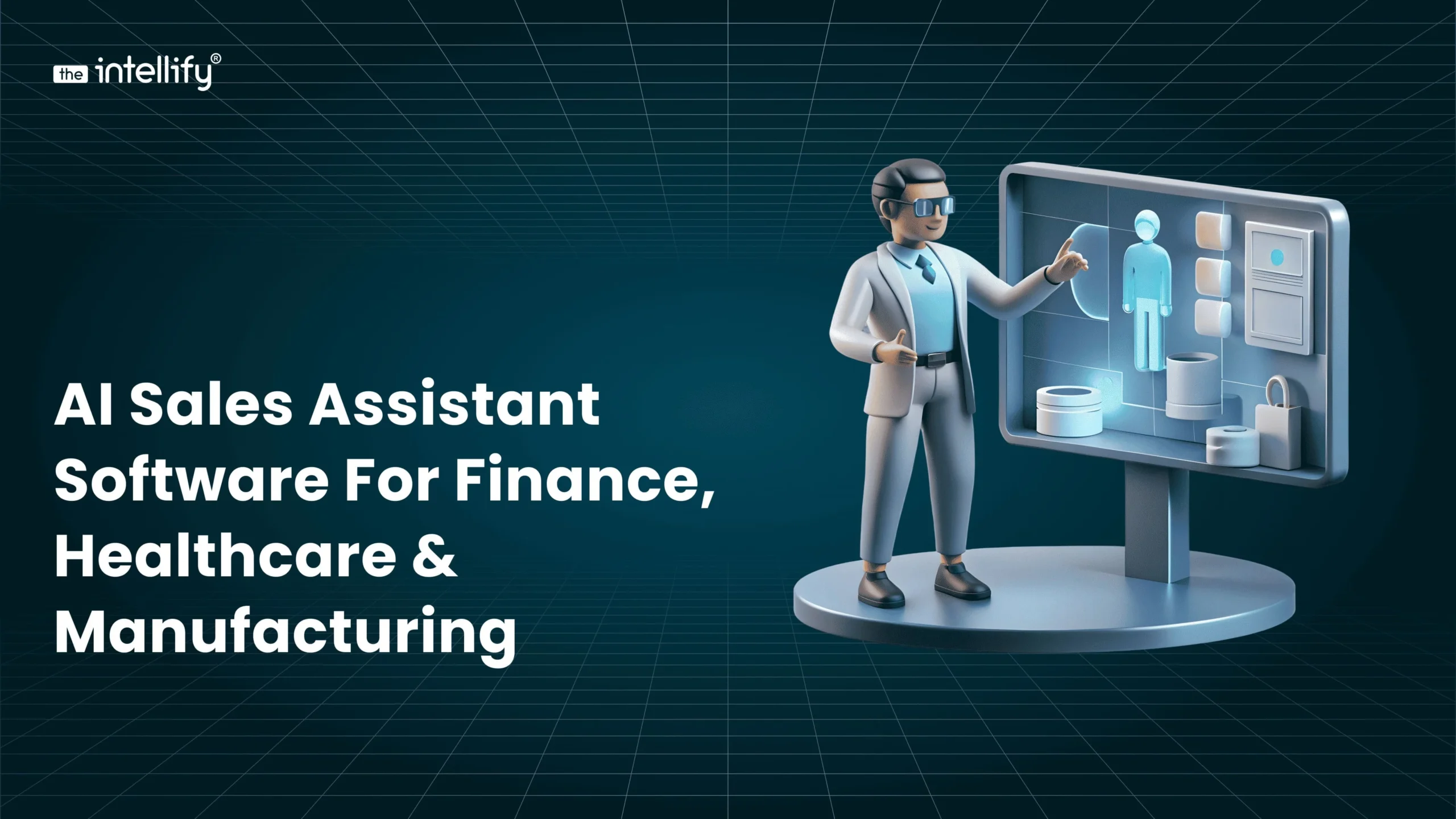Summary
This blog covers everything you need to know about AI app development in 2025, including costs, timelines, industry benefits, and key steps. It also shares tips on choosing the right AI app development company for secure, scalable, and future-ready solutions.
Artificial intelligence, or AI, is no longer only something that happens in movies. It’s a technology that affects how we live, work, and use digital platforms in the real world. By 2025, AI-powered apps will be the backbone of innovation in many industries, from personalized retail experiences to predictive healthcare solutions.
If you’re a business leader, startup founder, or product manager, developing AI apps can give you an edge over your competition. It can help you service consumers better, manage your business more smoothly, and uncover new ways to make money.
What is AI App Development?
AI app development is the process of building mobile or web apps that integrate AI capabilities such as machine learning, natural language processing (NLP), computer vision, and predictive analytics.
AI-powered apps may learn from data, adapt over time, and make smart choices. This makes them more useful and personalized than normal apps that follow set rules.
Here are several examples:
- Voice assistants like Siri or Alexa can understand how people talk.
- Netflix’s recommendation system suggests shows that you’ll adore.
- Health apps that use AI can inform you what health problems you might have.
- Chatbots that act like real people to serve customers
In short, AI app development uses AI algorithms, software engineering, and data science to produce apps that do more than just work.
Benefits of AI App Development for Businesses
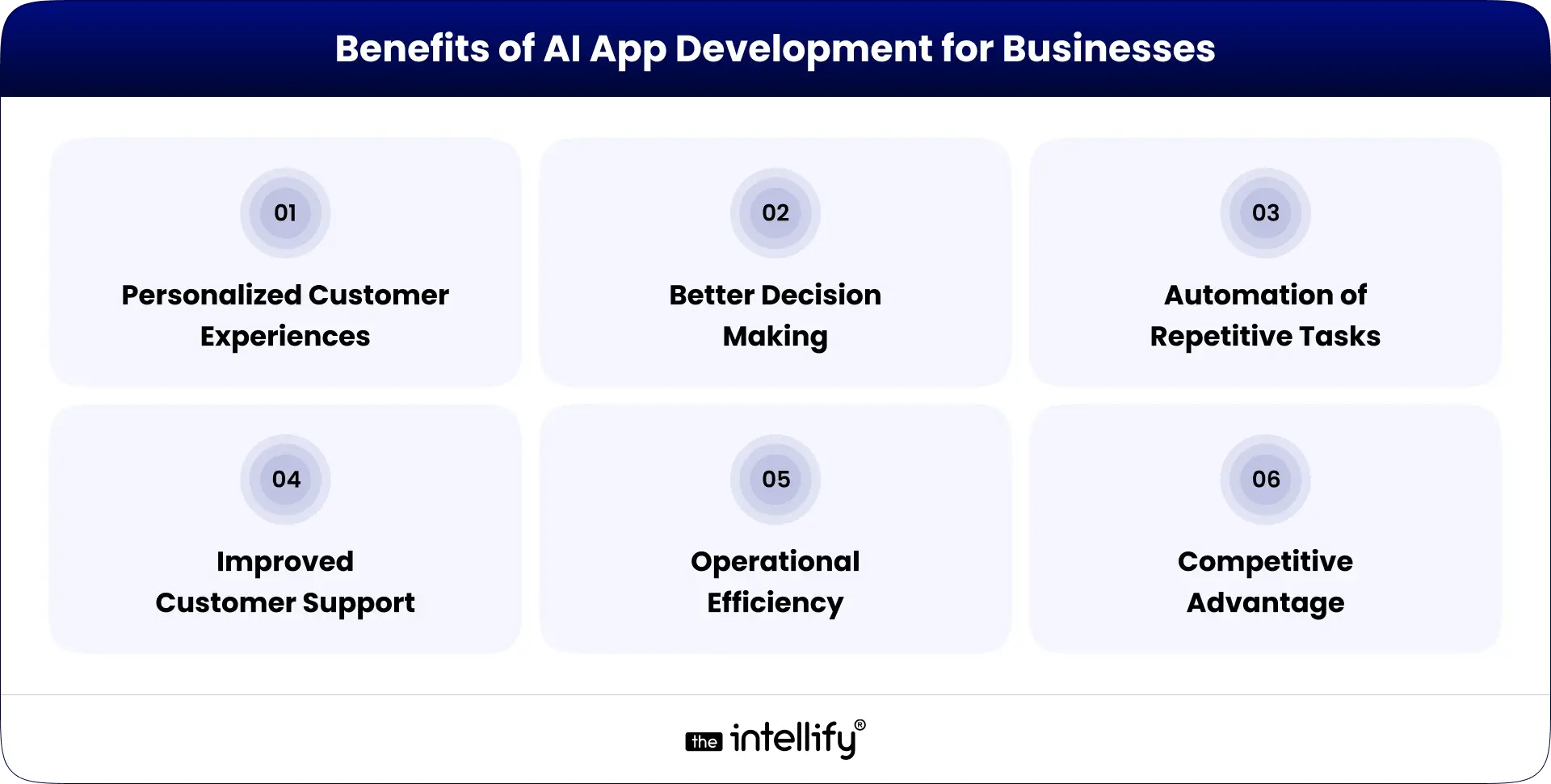
AI-powered apps can really aid your business and have a direct impact on your bottom line.
1. Personalized Customer Experiences
AI uses information about users and their behavior to produce very personalized recommendations, promotions, and content that get people more interested and boost sales.
Example: Spotify’s AI-powered playlists keep users coming back daily.
2. Better Decision-Making
Predictive analytics lets firms make decisions based on data that are faster and better, which cuts down on guessing.
3. Automation of Repetitive Tasks
Automating chores that need to be done again and over again AI can handle things like sorting emails, processing documents, and answering consumer concerns.
4. Improved Customer Support
AI chatbots and virtual assistants are available 24/7 and answer straight away. This makes consumers happier and decreases support expenses.
5. Operational Efficiency
AI helps save money, time, and mistakes by automating tasks and allocating resources wisely.
6. Competitive Advantage
Using AI-powered products early might help you stand out in your market and attract customers and investors who know a lot about technology.
Step-by-Step AI App Development Process
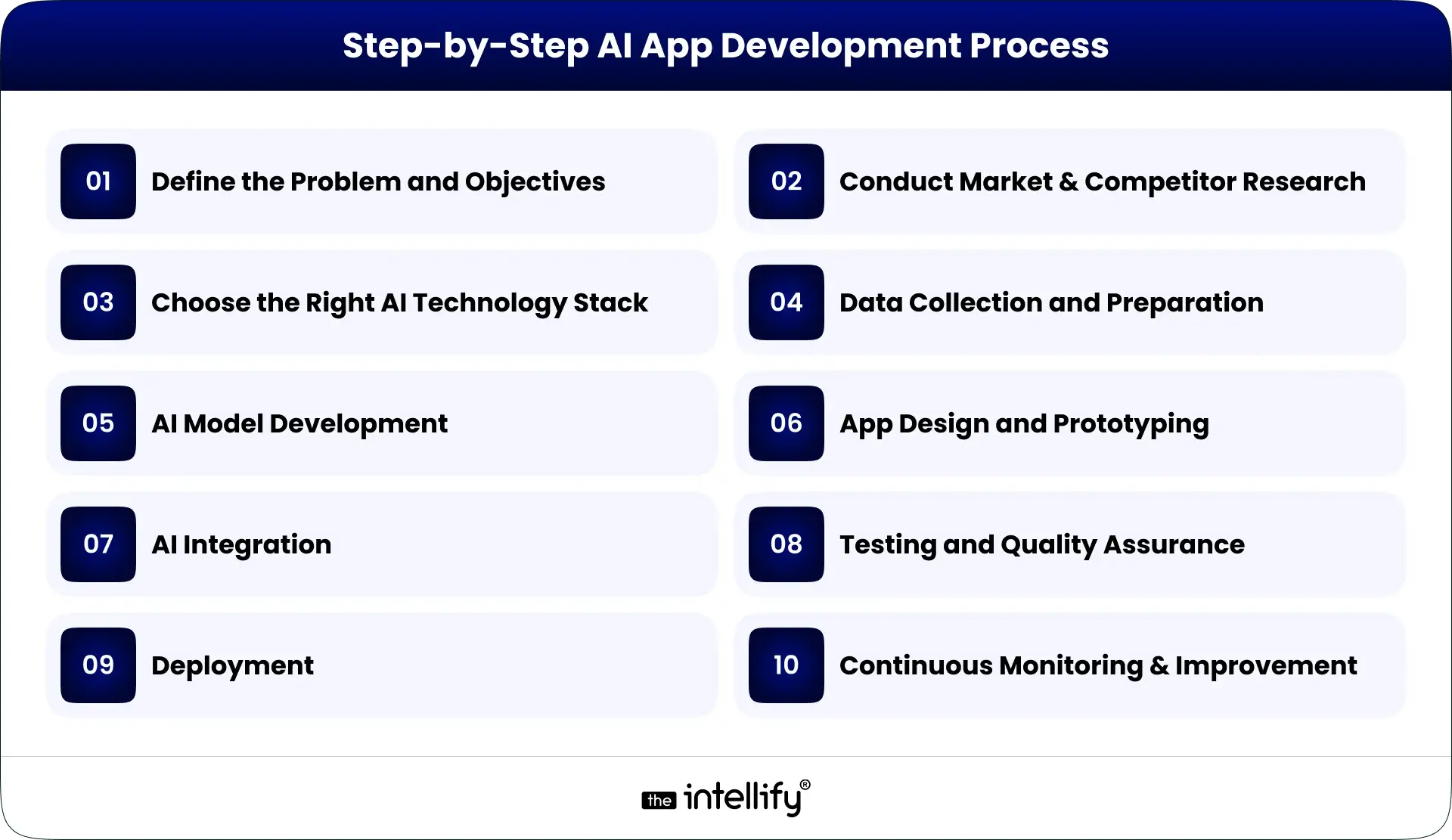
It is important to build an AI app in a systematic fashion so that it is accurate, efficient, and scalable.
Step 1: Define the Problem and Objectives
Before you start writing code, clarify: What business problem are you solving?
- What business problem are you solving?
- Who is your target audience?
- What AI capabilities are required?
This makes sure that the program has a clear purpose and that you can observe how well it functions.
Step 2: Conduct Market and Competitor Research
To improve your AI app idea, find out what users need, what difficulties they have, and what new things are happening in the business.
Step 3: Choose the Right AI Technology Stack
You will need to choose the frameworks, libraries, and tools to employ based on what the app needs:
- Machine Learning: TensorFlow, PyTorch
- NLP: spaCy, NLTK, OpenAI API
- Computer Vision: OpenCV, YOLO, MediaPipe
- Cloud AI Services: AWS AI, Google Cloud AI, Azure Cognitive Services
Step 4: Data Collection and Preparation
AI works because it has good data. Make sure you get the correct datasets, clean them up, and get them ready so that they accurately reflect what happens in the actual world.
Step 5: AI Model Development
- Train the AI model using the algorithms you selected.
- Validate performance with test data
- Optimize accuracy and reduce biases
Step 6: App Design and Prototyping
Check if the interface is simple to use. AI works best when it’s easy for people to utilize.
Step 7: AI Integration
Put the trained AI model in the app’s backend so that the AI portions and the app’s features may work together without any complications.
Step 8: Testing and Quality Assurance
Test the app for:
- Functional performance
- AI accuracy
- Scalability under high usage
- Security and privacy compliance
Step 9: Deployment
Release the app on desired platforms (App Store, Google Play, web). Configure cloud hosting and monitoring tools.
Step 10: Continuous Monitoring and Improvement
To get better results, AI apps should evolve, gather input from users, track AI performance, and update models regularly.
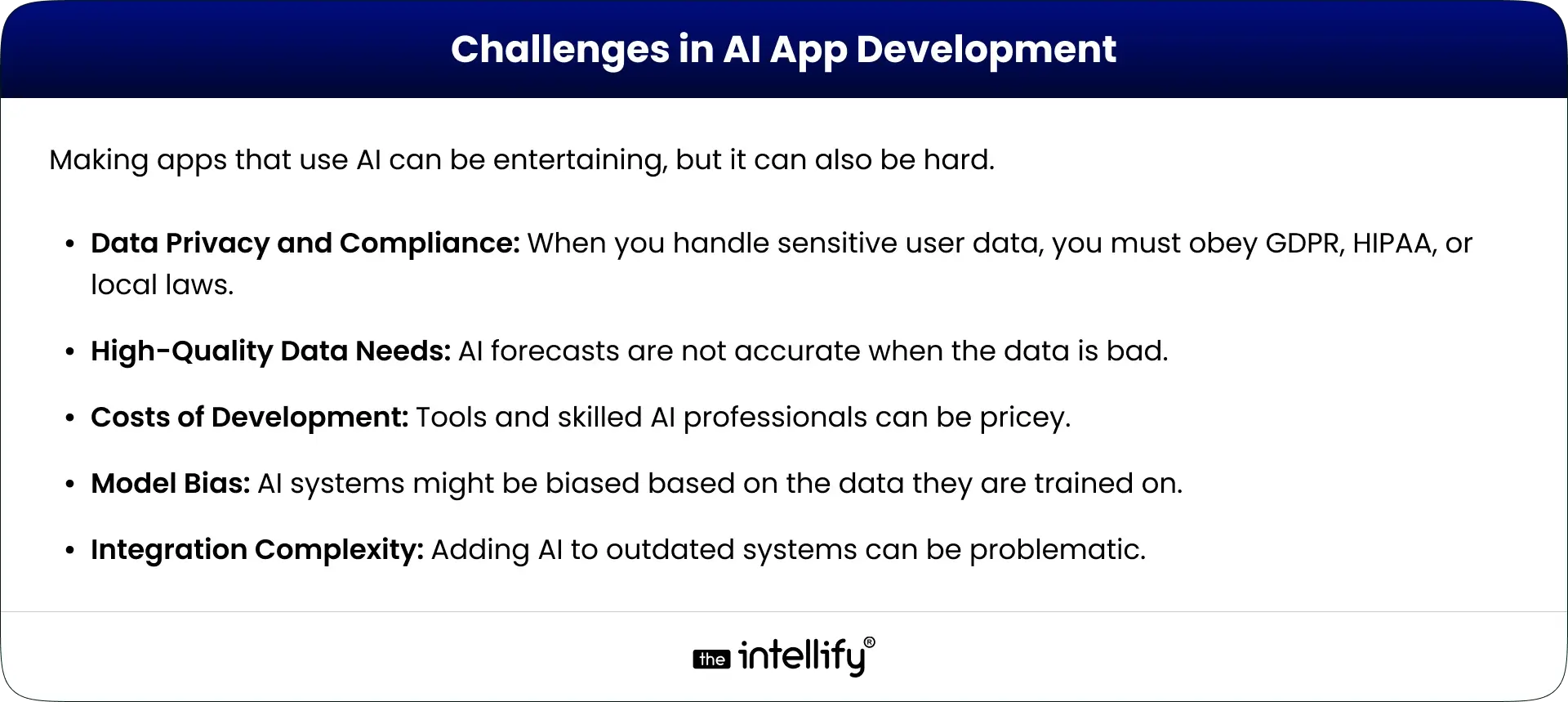
AI App Development Best Practices | Things to Consider
Building a successful AI application is not just about writing code. You also need to use a systematic method that lowers risks and achieves the maximum return on investment (ROI). Here are some crucial things you should do:
- Start with a Clear Problem Statement
- Invest in High-Quality Data
- Choose the Right AI Model
- Prioritize Explainability & Transparency
- Plan for Scalability Early
- Continuous Learning & Monitoring
- Ensure Ethical AI Use
AI App Development Use Cases Across Industries
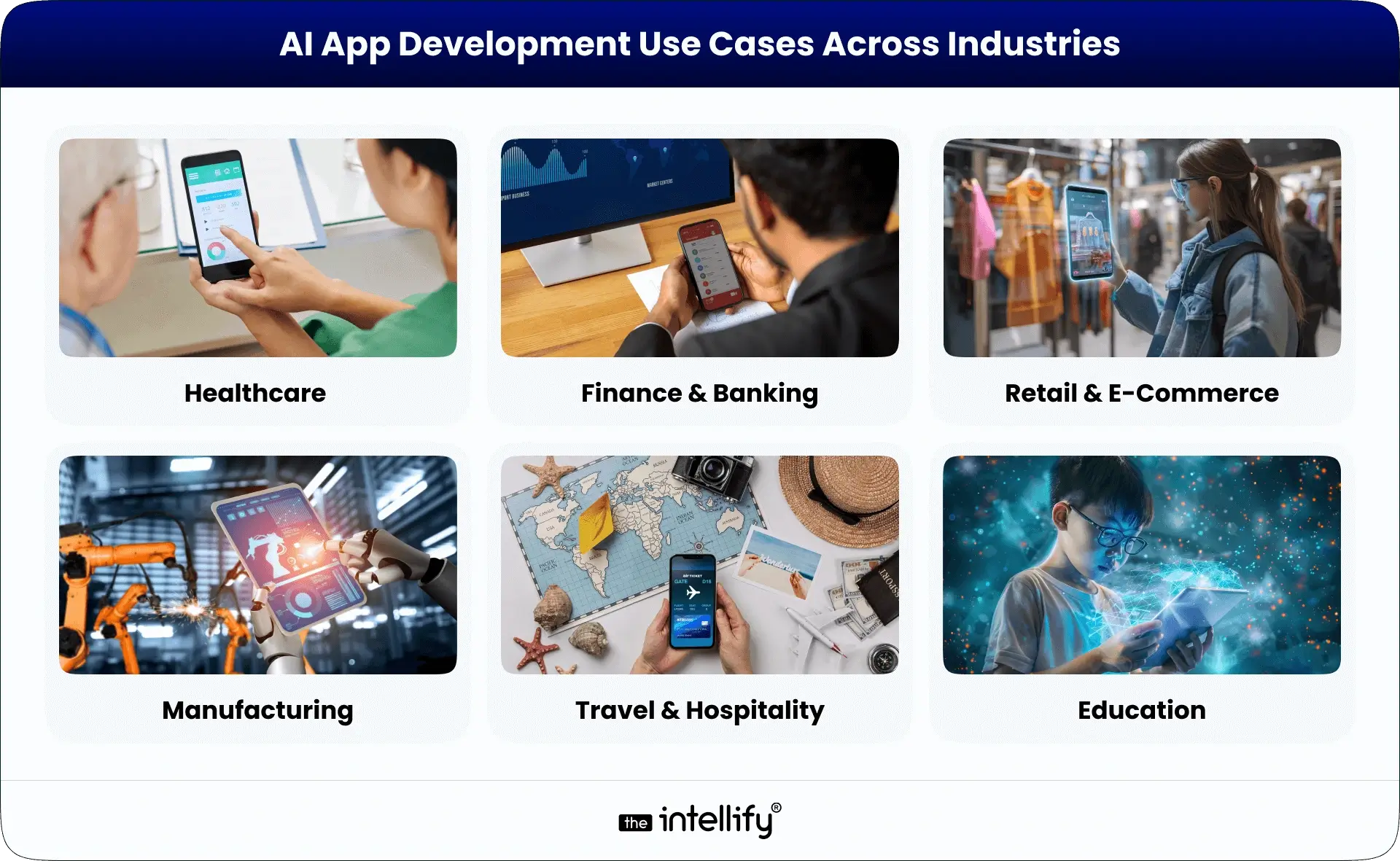
AI-powered apps are transforming practically every area of life. Here are some of the best applications for certain fields:
1. Healthcare
- AI Diagnostic Tools – Apps that help detect diseases from X-rays, MRIs, or patient data.
- Virtual Health Assistants – 24/7 symptom checkers and medication reminders.
- Predictive Analytics – Forecasting patient readmissions or identifying at-risk populations.
2. Finance & Banking
- Fraud Detection – Real-time transaction monitoring to prevent unauthorized activity.
- AI-Powered Trading Bots – Automated investment decisions based on market patterns.
- Personalized Financial Advice -Budget planning and investment recommendations.
3. Retail & E-Commerce
- Product Recommendation Engines – Boosting sales through personalized shopping experiences.
- Inventory Optimization – Predicting demand to avoid overstock or shortages.
- AI Chatbots – 24/7 customer support that reduces wait times.
4. Manufacturing
- Predictive Maintenance – Preventing costly machinery breakdowns.
- Quality Control Automation – Detecting defects in production lines using computer vision.
5. Travel & Hospitality
- Dynamic Pricing Models – Adjusting ticket or hotel rates based on demand patterns.
- Virtual Travel Assistants – Offering trip planning and itinerary recommendations.
6. Education
- Personalized Learning Platforms – AI tutors that adapt lessons to student learning styles.
- Automated Grading – Reducing teacher workload.
How Much Does It Cost to Build an AI App?
The cost of AI app development depends on multiple factors, including complexity, features, and required integrations. On average, here’s what you might expect:
1. Basic AI Apps (Simple chatbots, basic recommendation systems)
- Cost Range: $20,000 – $50,000
- Development Time: 2-4 months
2. Medium-Complexity AI Apps (Predictive analytics tools, NLP-based assistants)
- Cost Range: $50,000 – $120,000
- Development Time: 4-8 months
3. High-End AI Apps (Advanced computer vision, deep learning, multi-platform support)
- Cost Range: $120,000 – $500,000+
- Development Time: 8-12 months
Additional Cost Factors:
- Cloud infrastructure fees (AWS, Azure, GCP)
- Data collection & preprocessing
- AI Model training & tuning
- Maintenance & updates
- Development Team Location
How to Choose the Right AI App Development Company
Selecting the right AI app development company can make or break your project. AI is a very specialized field; the wrong choice could lead to delays, waste budget, or even an unusable product. Take a deeper look at the key factors you should consider:
1. Proven AI Portfolio – Check if they’ve delivered similar AI solutions in your industry.
2. Technical Expertise – Ensure they have experience in ML, NLP, computer vision, and MLOps.
3. Data Security Practices – Verify their compliance with GDPR, HIPAA, or other relevant standards.
4. Scalability Capabilities – Can they future-proof your app for higher loads and more
5. Post-Launch Support – AI apps require ongoing maintenance and retraining, so make sure they offer it.
6. Transparent Pricing – Avoid hidden costs by demanding clear project estimates.
Future Trends in AI App Development
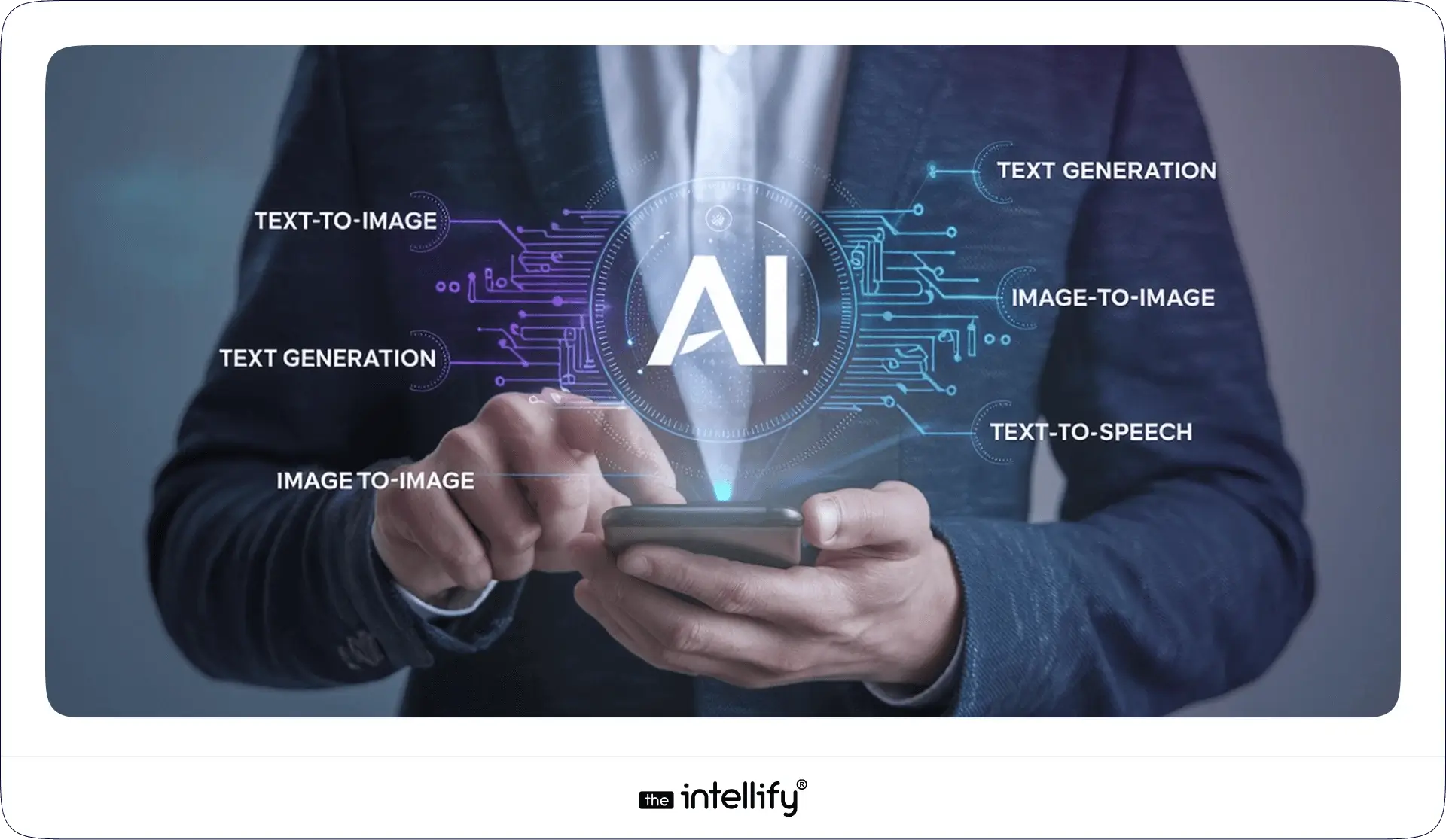
In 2025, AI app development will go beyond just automating tasks to include real-time, hyper-personalized intelligence. Here are some new trends that are changing the future:
1. Generative AI Integration
Beyond chatbots, generative AI is enabling realistic simulations, content creation, and hyper-customized experiences.
2. AI + IoT Convergence
AI-powered IoT devices will dominate industries like healthcare (remote monitoring), manufacturing (smart factories), and logistics (real-time fleet tracking).
3. Edge AI
Processing data locally on devices rather than cloud servers for faster, privacy-friendly AI experiences.
4. AI for Sustainability
Apps that optimize energy usage, reduce waste, and track carbon footprints.
5. Multi-Modal AI Apps
Systems that understand and process text, images, audio, and video simultaneously for richer interactions.
6. Stronger AI Governance
Businesses will increasingly adopt ethical AI frameworks to ensure compliance and build trust.
Why Choose The Intellify for AI App Development?
At The Intellify, we combine technical expertise with a deep understanding of business needs to deliver tailor-made AI solutions. This is what sets us apart:
- Proven Expertise: Years of experience with AI, ML, computer vision, NLP, and predictive analytics.
- Custom Solutions: Every app is designed to solve your unique business challenge, not just a one-size-fits-all approach.
- Scalable Architecture: We make sure that your AI app can handle more users as they expand.
- End-to-End Support: From ideation and development to deployment and maintenance.
- Industry Versatility: Successfully delivered AI apps for healthcare, retail, finance, manufacturing, and more.
In Conclusion
AI app development in 2025 gives organizations a great chance to come up with new ideas, improve things, and expand. AI can improve many things about how your business functions, such as making customer interactions more personal and employing predictive analytics.
If you follow a disciplined process, use best practices, and collaborate with experienced engineers like The Intellify, you can succeed whether you’re starting with a small MVP or building a massive AI platform.
Frequently Asked Questions (FAQs)
1. How much does it cost to build an AI app in 2025?
AI app development costs in 2025 can range from $25,000 to $250,000+, depending on complexity, AI models used, integrations, and compliance requirements. A simple AI chatbot will cost far less than an enterprise-grade predictive analytics platform. For accurate estimates, request a detailed proposal based on your project’s features and scalability goals.
2. How long does AI app development take?
Most AI apps take 3-9 months to develop, including design, AI model training, and testing. Timelines vary based on data availability, app complexity, and required integrations. Proof-of-concept AI apps can be built faster, while large-scale enterprise apps may take longer.
3. Should I outsource AI development or build in-house?
Outsourcing gives you instant access to AI expertise, tools, and faster delivery, making it ideal for companies without an AI team. Building in-house offers more control but requires heavy investment in talent, infrastructure, and training. Many businesses start by outsourcing, then transition to hybrid models.
4. What industries can benefit from AI apps?
AI apps are transforming healthcare, finance, retail, manufacturing, logistics, education, and marketing. From automating workflows to enhancing customer experiences, AI delivers cost savings, efficiency, and new revenue opportunities across sectors.
5. Do AI apps require ongoing maintenance?
Yes. AI apps need continuous updates, retraining, and monitoring to stay accurate and secure. Changes in data patterns, user behavior, or regulations can impact performance, making post-launch AI model optimization essential.
6. How do I keep my data private and compliant?
Work with AI developers who follow GDPR, HIPAA, or industry-specific security standards. Ensure data encryption, anonymization, and secure storage. Regular security audits and compliance checks are crucial for avoiding legal risks.
7. How do I choose the best AI app development company?
Look for a proven AI portfolio, expertise in ML/NLP/computer vision, strong security practices, scalability support, and transparent pricing. Also, check if they provide post-launch maintenance and AI model upgrades for long-term success.
